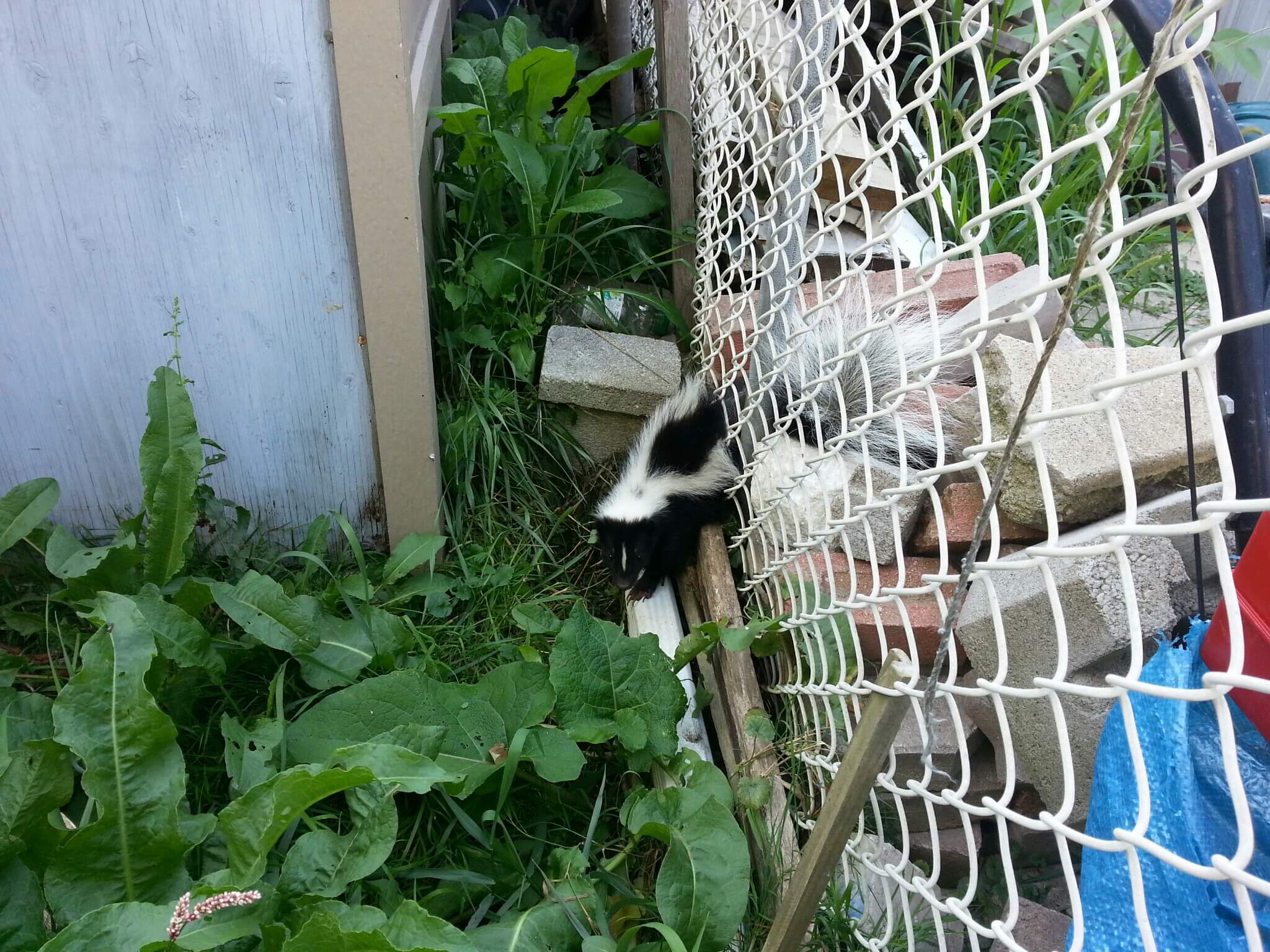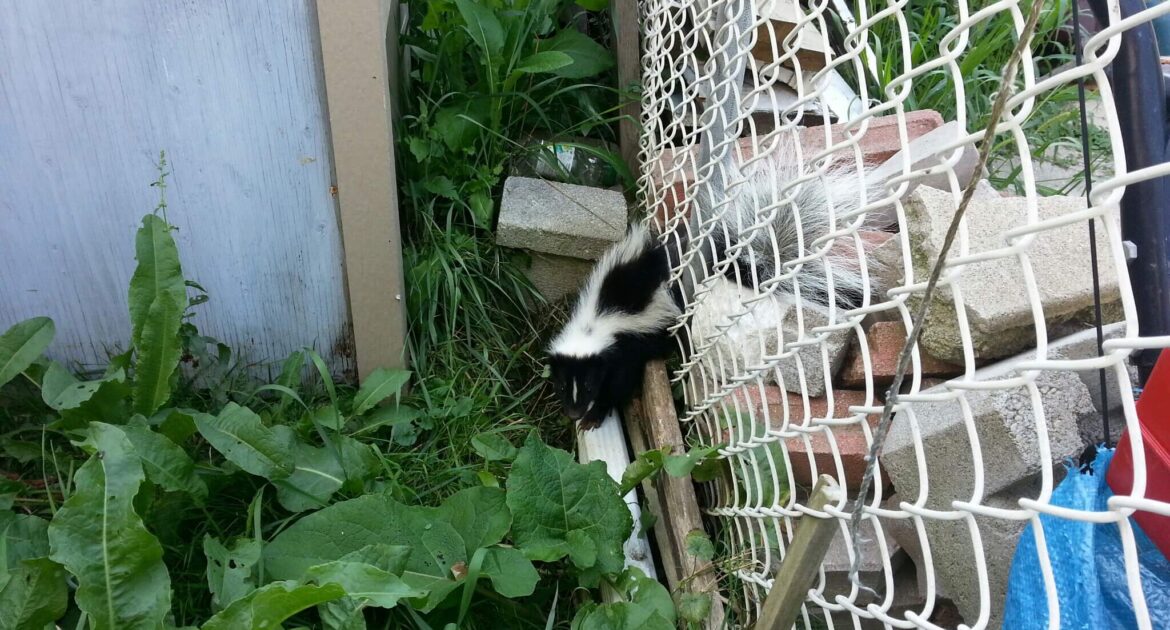The question of skunks’ social behavior becomes significant when they are on your property. Generally speaking, adult skunks are solitary and tend not to congregate in groups, even small ones. However, that doesn’t necessarily mean that when you call for skunk removal, there will only be one animal. There are situations in which skunks can be more social. Here are some factors that influence the social habits of skunks.
1. Gender
Generally speaking, male skunks do not actively seek out the company of others of their species, especially other males. They tend to be more solitary. In fact, male skunks tend to be territorial. They have a range that they cover and if they find another skunk in their territory, they are inclined to fight to defend it.
On the other hand, female skunks are more inclined to be social. They may gather together in small groups of other females. Sometimes young female skunks will stay with their mother for at least a while after their brothers have gone off on their own.
2. Season and Weather
Skunks do not exactly hibernate during the winter as many other animals do. Instead, they enter a state called torpor. When the temperature is cold, they enter a state of inactivity that slows down their metabolism and conserves energy so they no longer need as much food. If the temperature rises to an acceptable level on any given day, skunks can come out of torpor to forage for food, then return to it when the temperature drops again.
Another way that skunks may survive the winter months is by gathering together in a single den and sharing their body heat. This is usually a group of females, although sometimes a single male may join the group. Male skunks do not den together even to share body heat during the winter, but females are more amenable to it.
3. Mating
Throughout most of the year, male skunks stick to their own territory. They do not seek out the company of other skunks and actively try to deter them from their range. However, that changes during the mating season, which starts in the late winter or early spring. When the females are in estrus, male skunks may travel several miles every night looking for a potential mate. Once the male has successfully mated with a female, it does not stick around to help raise the babies. Rather, it leaves in search of another female to mate with. Male skunks are polygamous and may mate with several different females per mating season.
Once a female has mated, she does not mate again during the same breeding season except in rare instances in which something happens to her first litter. Female skunks can be selective about their choice of mate, using her spray to prevent a match she deems unsuitable.
4. Raising Offspring
When baby skunks are born, they are almost completely helpless. They do have the ability to produce their smelly spray when they are only a few weeks old, but it takes several months for them to be able to control it. Baby skunks are born blind and do not open their eyes until they are three months old. During this time, the baby skunks are entirely dependent on their mother. Even once they are ready to venture out from their den, they have to learn from their mother how to find food and defend themselves.
Female skunks that have mated typically look for different dens in which to raise babies than those in which they spent the winter. If you find a skunk den on your property, it could have one skunk or several, possibly including babies.
Call Skedaddle for Skunk Removal in Madison
Skedaddle performs many types of wildlife control in Madison. Skunk removal is only one of our services. Learn more about the others.




